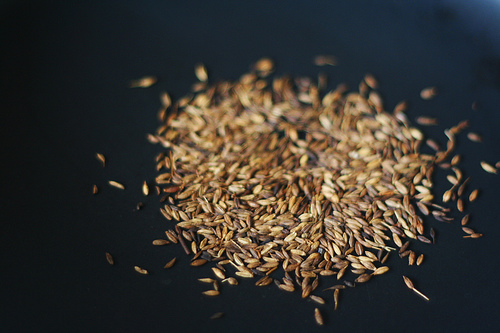
Cumin
Cumin is the dried seed of a herb called Cuminum Cyminum, a herb that belongs to the Parsley family. Cumin is commonly used in culinary arts for its pungent smell. It is an important part of Indian, Mexican, Chinese, Mediterranean and Middle Eastern cuisines. But apart from being good for our taste buds, cumin is also great for our health, especially because of its blood sugar lowering properties. Cumin is effective in reducing blood glucose, a health benefit that would be advantageous for diabetics. It can also lower the blood cholesterol and triglycerides levels, even to an extent greater than the action of glibenclamide (glyburide), a well known anti-diabetic medication.
- Important notification about information and brand names used in this slideshow!
- Photo courtesy of Kris A by Flickr : www.flickr.com/photos/webgrl/2853693175/
- www.care2.com/greenliving/10-spices-that-heal-cancer-diabetes-and-more.html
- http://www.completehealthdallas.com/Top10SpicesForHealth.html http://www.marksdailyapple.com/cumin/#axzz2cTHD2IFE

Ginger
Whether it is used fresh, dried, powdered, juiced or as an oil, the wonders of ginger can be equally appreciated, in all its forms. Native to South Asia, this wonderfully spicy and aromatic herb is now commonly used in almost all cultures, be it for its culinary properties or its medicinal properties. As a culinary spice, ginger adds a spicy and pungent taste to all dishes, fruit mixes and even refreshments. When used as a medical herb, ginger is effective for the relief of pain and discomfort associated with sore throats and flu. It is also used to treat motion sickness in travelers and even morning sickness (nausea and vomiting) in pregnant women. Ginger is also rich in substances called "gingerols", potent anti-inflammatory molecules that are believed to relieve pain from inflammatory joint diseases (osteoarthritis, rheumatoid arthritis, etc.) with regular ginger consumption.

Basil
A parent of peppermint, basil is recognizable at its pointed leaves. Basil is a rich source of vitamin K, volatile oils and antioxidants (flavonoids), which all possess health-promoting effects. Basil's main flavonoids are called "orientin" and "vicenin", and as antioxidants they protect our cells against chemical damage. Chemical damage can result spontaneously from internal reactions that occur within the cells, and if not controlled can lead to premature cell aging and weakening of the immune system. Basil's essential oil promotes health by preventing bacterial overgrowth. The oil is extracted from the basil leaves and has been clinically proven to prevent the growth of bacteria, even those that are resistant to antibiotics. Such bacteria include Yersinia enterocolitica, Listeria monocytogenes, Escherichia coli O:157:H7, Staphylococcus aureus and Pseudomonas aeruginosa (all being potential causes of gastroenteritis).
- Important notification about information and brand names used in this slideshow!
- Photo courtesy of Fernando Stankuns by Flickr : www.flickr.com/photos/stankuns/3250703392/
- www.whfoods.com/genpage.php?tname=foodspice&dbid=85
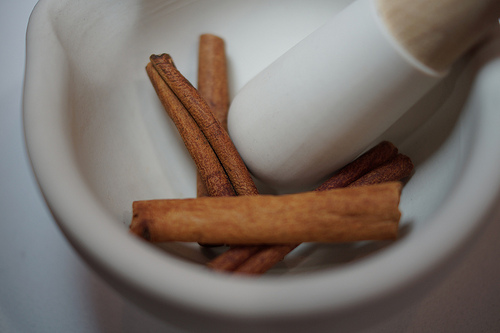
Cinnamon
Who would have believed that one could obtain such an aromatic spice from a tree? This is the story of cinnamon. Extracted from the inner bark of the trees of the Cinnamomum genus, cinnamon is an aromatic spice that was long used in antiquity as a gift for monarchs, and even for gods. Its pleasant fragrance (attributable to its essential oil) makes it the spice of choice today in cookery, be it in dessert recipes (cinnamon buns, apple pies, donuts), in sweet and sour dishes; and even in liqueurs. Cinnamon is also used in traditional medicine for blood sugar control. it is thought to decrease the rate of gastric emptying, thus preventing sudden rise in blood sugar levels after a meal. Additionally, it stimulates the insulin receptors located on target cells, thus increasing cellular response to insulin. Furthermore, the "cinnamic aldehyde" (aldehyde derived from cinnamon) is thought to have anticancer activity (especially against melanoma, a type of skin cancer), as observed in some studies performed on mice models. Lastly, Cinnamon smell is also thought to boost brain activity, attention span and memory.
- Important notification about information and brand names used in this slideshow!
- Photo courtesy of trophygeek by Flickr : www.flickr.com/photos/trophygeek/7309909880/
- Source 1: http://www.whfoods.com/genpage.php?tname=foodspice&dbid=68 Source 2: http://en.wikipedia.org/wiki/Cinnamon#Medicinal_research

Nutmeg
Nutmeg is a sweet-smelling seed derived from the trees of the genus "Myristica". Just like cinnamon, nutmeg is used in sweet and sour dishes, pastries and liqueurs. Health wise, nutmeg is thought to have strong antibacterial properties especially against "streptococcus mutans", a gram positive bacterium commonly found in the oral cavity and responsible for tooth decay. It also works as a brain tonic and increases concentration, improves memory and attention span. These effects are attributable to its content in "Myristicine", a psychoactive chemical that works by inhibiting the enzyme responsible for the breakdown of serotonin and dopamine (neurotransmitters that uplift the mood). That way, nutmeg also helps in alleviating the symptoms of depression and anxiety. However, nutmeg toxicity has been noted, producing symptoms such as headaches, nausea, dizziness, dry mouth, etc. all due to the hyperactivity of the nervous system.
- Important notification about information and brand names used in this slideshow!
- Photo courtesy of Kate Ter Haar by Flickr : www.flickr.com/photos/katerha/5464173733/
- Source 1: completewellbeing.com/article/a-nutty-affair/
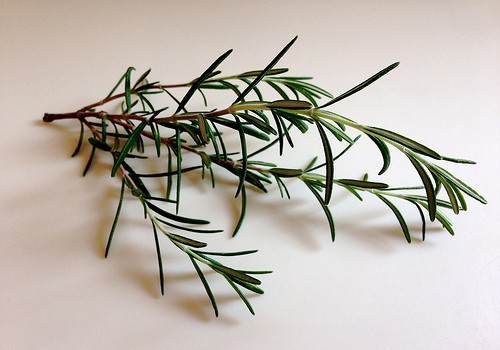
Rosemary
Here comes the elegant spice. Everything about Rosemary is indeed gracious, from its name to its origins and various uses. The name “Rosemary” comes from two Latin words: “ros” which means “dew”, and “marinus” which refers to “sea”. Hence, Rosemary is the “Dew of the Sea”, which graciously rises from the soil and blossoms with the sole help of the refreshing breeze carried by the sea. Rosemary is referred to as the "Remembrance plant", because it has been used in traditional medicine to boost memory. This also explains why it is used in weddings (to remember the love that unites two souls) and in funerals (to remember a loved one that has passed away). The memory-boosting effects of rosemary are attributable to its smell, though the details of its mechanism of action are not well apprehended.
- Important notification about information and brand names used in this slideshow!
- Photo courtesy of Health Gauge by Flickr : www.flickr.com/photos/healthgauge/9441479043/

Garlic
A simple ingredient, yet packed with a great deal of health benefits. Though disagreeable for some, garlic's pungent odor is what makes it so unique. Its aromatic smell is attributable to its high content in allicin, a sulphur containing chemical. Garlic works efficiently as an antimicrobial agent, targeting bacteria, viruses, fungi, yeasts and worms with the effect of allicin. Allicin can also help in decreasing blood pressure by inhibiting angiotensin II. Garlic can also help to prevent blood coagulation and decrease the risk of heart attacks and stroke. This is due to its high content in "ajoene", a chemical that is also derived from allicin. Furthermore, garlic can decrease the symptoms of allergies (swelling, fever, redness, etc.) by inhibiting the inflammatory response.
- Important notification about information and brand names used in this slideshow!
- Photo courtesy of Machs einfach by Flickr : www.flickr.com/photos/machseinfach/3051813561/
- Source 1: health.india.com/diseases-conditions/15-health-benefits-of-garlic/
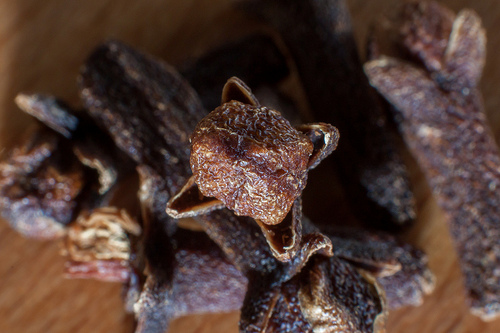
Cloves
"Cloves make you clever"; parents used to say to try to get their kids to eat those homemade pumpkin pies. But they were not so wrong, at the end of the day! Cloves are a rich source of manganese, magnesium, omega-3 fatty acids, vitamin K, dietary fibers as well as vitamin C. Manganese is a chemical involved in countless reactions in the body, including those that occur within the brain. Magnesium in the other hand helps to maintain normal muscle and brain function, boosts the immune system, supports the heart function, normalizes blood pressure and adjusts blood sugar levels. Omega-3 fatty acids lower the risk of plaque formation in the blood vessels, and vitamin K prevents blood coagulation. By providing considerable quantities of all these nutrients, cloves promote health in more than one way.
- Important notification about information and brand names used in this slideshow!
- Photo courtesy of Tim Sackton by Flickr : www.flickr.com/photos/sackton/7978479512/
- Source 1: ods.od.nih.gov/factsheets/Magnesium-HealthProfessional/

Thyme
The origins of Thyme are quite hard to retrace, as it finds deep roots in Ancient Egypt, Greece and the European Civilization in general. Back in the days, it was considered sacred by the Egyptians because they commonly used it for embalming of bodies. It was also used as holy incense in temples. Fresh Thyme has been praised for its invaluable health benefits in folk medicine. Even before antibiotics were created, Thyme was used in to disinfect wounds and sanitize bandages. This effect was attributable to its primary ingredient, thymol, which works as a potent antiseptic. It is even added to several mouthwash formulas (Listerine is an example). In addition, Thyme is a great source of flavonoids( among which apigenin, naringenin, luteolin, and thymonin) which work as antioxidants, protecting our cells from chemical damage. Thyme is also rich in Vitamin K which prevents improper blood coagulation and prevents clots formation.
- Important notification about information and brand names used in this slideshow!
- Photo courtesy of cookbookman17 by Flickr : www.flickr.com/photos/cookbookman/6121426994/
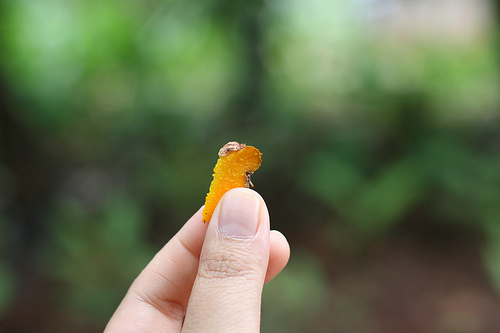
Turmeric
Turmeric (or Curcuma Longa) is a seasoning spice parent of ginger, and native to tropical South Asia. It has a rich and fragrant mustard color, almost resembling that of yellow curry. It's active ingredient, "curcumin", is responsible for most of its health benefits. In India, turmeric has been used for the treatment of digestive problems (including upset stomach, stomach ulcers or diarrhea). It also works as a potent anti-inflammatory and is thus used to relieve eczema, skin sores and topical allergies, as well as for the relief of pain and inflammatory symptoms in common diseases like ulcerative colitis, Crohn's disease and even rheumatoid arthritis.
- Important notification about information and brand names used in this slideshow!
- Photo courtesy of missy by Flickr : www.flickr.com/photos/missy-and-the-universe/3493675047/
- Source 1: http://www.whfoods.com/genpage.php?tname=foodspice&dbid=78#healthbenefits Source 2: http://en.wikipedia.org/wiki/Turmeric#Medicine











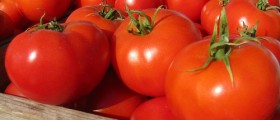





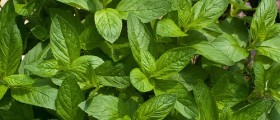

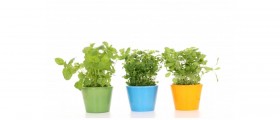
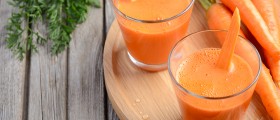





Your thoughts on this
Loading...